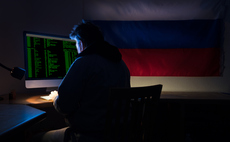Legal action will relieve Snowden of any US royalties he'll earn from his autobiography
The US government is suing former National Security Agency (NSA) contractor Edward Snowden claiming his autobiography breaks non-disclosure agreements (NDAs) signed when he started working for the ...
To continue reading this article...
Join Computing
- Unlimited access to real-time news, analysis and opinion from the technology industry
- Receive important and breaking news in our daily newsletter
- Be the first to hear about our events and awards programmes
- Join live member only interviews with IT leaders at the ‘IT Lounge’; your chance to ask your burning tech questions and have them answered
- Access to the Computing Delta hub providing market intelligence and research
- Receive our members-only newsletter with exclusive opinion pieces from senior IT Leaders





















